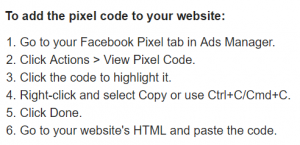It’s inevitable that the new year will bring about a lot of resolution-making. Gym memberships and juice bar sales alike go up in January as people vow to exercise more and eat healthily. While resolution-making may not be for everyone, it can be beneficial for your business. Setting your business resolutions help dictate more granular goals as well as the general direction for the year ahead. Business resolutions are broad goals that will help grow your business and focus on your aspirations for the upcoming year.

Now the dust around the first week of the year has settled down, below are some ideas if you haven’t already set your business resolutions for the year.
Achieve a work-life balance
A work-life balance will mean something different to everyone. There’s no universal magic formula, nor is it simply split 50/50. Your business is your baby but as you grow, you have to start delegating because you can’t do everything yourself. Try committing to a set of working hours and adhere to them or dedicate strict technology, work, and email-free periods. Set aside time to detox and decompress in any form– whether it’s spending time with family and friends, having a bath, or catching up on your favorite show. Work-free time is necessary to recharge and refresh for both physical and mental health. If you find it difficult to take breaks and to stop working, try incorporating breaks into your schedule. There are also technological assists like Time Out that can help facilitate your self-imposed downtime.
Listen more
Better communication skills are always beneficial. Make it a goal to listen more – to your customers, to your employees. Listening to your customers, via surveys, marketing technology, etc., will only lead to better data, improved business processes, and increased sales. Listening to your employees will give you invaluable data. They’re the ones on the front lines every day, and if there’s a larger problem at a higher level, they’re the ones that it’ll resonate with on a daily basis.
Try a new selling channel
Multichannel is gaining traction. Accepting payments in multiple ways not only ensures that your customers can pay however they prefer – whether it’s with credit and debit card or via mobile wallets. If you don’t currently accept credit cards, you’re losing a chunk of your potential customer base; by 2025, 75% of transactions will be cashless.
But there’s also another reason to add another selling channel: omni-channel shoppers. Consumer behavior is changing, in that shoppers are no longer simply going to a brick-and-mortar store to conduct their research and purchases. The modern consumer is researching and buying across many channels and expects the entire experience to feel connected. Consumers are researching online and then purchasing in-store. While there, they’re interacting with in-store iPads and mobile apps. Alternatively, shoppers are also buying online then picking up in-store. More and more businesses are taking note of the evolved preferences and ensuring that the many channels that consumers interact with through their research, purchase, and fulfilment are synonymous.
Update your equipment
Outdated technology frustrates both your employees and customers. Slow internet speeds, clunky operating systems, and inadequate programs and tools can make even the simplest, daily tasks more arduous than necessary. More often than not old and outdated equipment hinders your staff’s day to day productivity.
Take care of yourself
This last one is a personal one, but it’s certainly crucial to your business. You’re not invincible; you’re human, which means you need to eat healthy, take breaks, detox, and unwind. A study revealed that productivity declines after a 50-hour workweek, and goes down so much after 55 hours that working more than that makes no difference. Exercise helps increase your mental alertness and prevents illness. Eating a healthy, balanced diet prevents fatigue, and super foods like berries, salmon, and nuts help nourish the brain. Lastly, remember to hydrate – dehydration has been correlated with poor planning skills.
To make sure that you don’t join the 42% of people who don’t achieve their new year’s resolutions, here are some tips to sticking to them:
Go slow and steady
Take it one step at a time. Break your resolution down into small goals and steps that you can implement day-to-day. “Spend one technology-free hour a day” is less overwhelming and more digestible than “achieve a work-life balance”.
Be flexible
While you should try to achieve the resolutions you’ve set for yourself, situations change. Your resolutions are not set in stone. This is especially important for business resolutions because sometimes you may find that original plans aren’t panning out, and you have to change directions. Give yourself the flexibility to pivot, if needed, to adapt to changing circumstances.
Don’t be too hard on yourself
You’ll have setbacks, and that’s ok. Focus on the positive stuff rather than the negative and keep moving ahead.
What are your business resolutions and tips for achieving them? Let us know in the comments!
Business & Finance Articles on Business 2 Community(114)
Report Post




